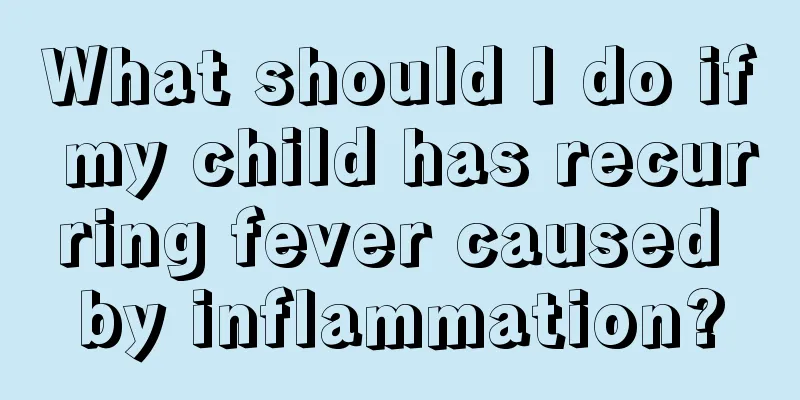What happens if a newborn baby is deprived of oxygen?

|
As soon as a newborn baby comes into this world, he or she will start breathing on his or her own. Since the fetus is accustomed to living in the mother's amniotic fluid, it may have symptoms of hypoxia when suddenly facing the outside air. At this time, the doctor needs to make an accurate judgment on the child. If there are symptoms of hypoxia, they must be resolved in time to ensure the health of the fetus and avoid the risk of disease. So, what happens if a newborn baby is deprived of oxygen? 1. Being very sensitive or excited. Normal newborns (especially low birth weight babies) will become easily excited and sensitive when they are hungry, but newborns with cerebral palsy are prone to this even when they are not hungry. 2. Excessive irritability, continuous crying, difficulty falling asleep, general fatigue, weak or tight limbs. Some parents even reported that their children cried all night. About 30% of children with cerebral palsy will experience symptoms similar to severe colic within 3 months after birth, with sudden and violent crying. 3. Frequent spitting, often with half-open mouth, and the tongue constantly moving, with little or a lot of movement, in a stereotyped manner. The symptoms of this type of cerebral palsy in children are often early symptoms of athetoid cerebral palsy. 4. Difficulty in care, such as difficulty in inserting the arms into the sleeves when dressing, difficulty in abducting the thighs when changing diapers, and difficulty in opening the fists when bathing. Parents often report that their children don't like taking a bath when their feet just touch the edge of the tub or the water surface. The back immediately stiffened and arched. This is also one of the characteristics of neonatal hypoxic ischemic cerebral palsy. 5. Very sensitive to sudden sounds or changes in body position, as if frightened. 6. Difficulty in feeding, uncoordinated sucking and swallowing. Sometimes parents report that milk flows out of the mouth while the child is eating. Difficulty gaining weight. 7. Motor development is not flexible. The baby cannot roll over at 4-5 months and cannot crawl at 9-10 months. The baby has abnormal muscle tone and posture. The muscle tone is not high and the sitting and crawling postures are different from those of normal children. 8. Abnormal reflexes. When you put something in the palm of the child's hand, the child will grasp it and wash it. Innate reflexes will disappear by 6 months old. If they have not disappeared yet, it is abnormal. |
<<: A complete menu for a three-year-old baby
>>: What to do if your child has intussusception
Recommend
Is it good for children to drink milk on an empty stomach in the morning?
We all have the habit of drinking milk. We all kn...
Language training for hearing-impaired children
Hearing impairment is a hearing problem that can ...
How should children with chronic heart disease be treated?
The birth of a baby is supposed to be a very happ...
How long can a four-month-old baby lie on his stomach?
When the baby is four months old, the height and ...
Is it normal for children to poop three times a day?
In general, the number of times people defecate i...
Why is a three-year-old baby vomiting?
The phenomenon of three-year-old babies vomiting ...
Treatment of molluscum contagiosum in children
The treatment of molluscum contagiosum in childre...
How many times a day should a seven-month-old baby eat complementary food to be healthy
Parents pay more attention to the nutritional hea...
Can children eat peach gum?
Peach gum can have a beautifying and skin-nourish...
The eyes of a baby with cerebral palsy_The eyes of a baby with cerebral palsy
Cerebral palsy will not only cause serious harm t...
What should I do if my child still wets the bed at the age of seven?
For many people, bedwetting is an indelible memor...
What are the sequelae of cerebral palsy?
What are the sequelae of cerebral palsy? Some dis...
What medicine and treatment methods should be taken for diarrhea in 6-year-old children
Nowadays, many children suffer from diarrhea, whi...
What are the drugs that can enhance children's immunity?
Immunity is very important for children. If a chi...
Newborn baby face red spots
If a newborn baby has some red spots on his face,...









